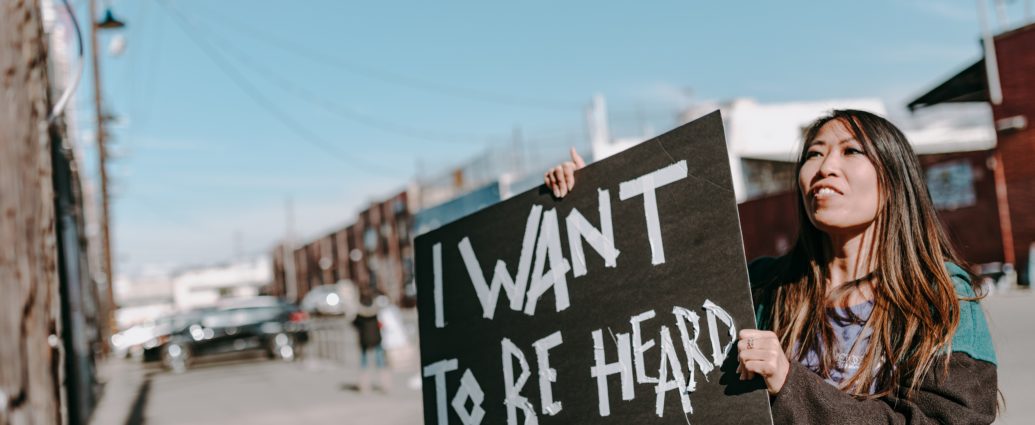Nicola Allen
As another year draws to a close, many of us will reflect by making end of year lists. What have we loved and hated? How have we changed? And where have we made a difference?
It has been a year that many of us may prefer to forget. Yet all over the world, much progress has been made. There are always those who refuse to give up, who against the odds have continued to champion their cause. You will no doubt see many ‘best of’ lists over the next few weeks, but one of the most meaningful (and one of my favourites) is the BBC’s 100 Women of 2021.
What is the list?
Launched in 2013 as part of the BBC 100 women series, this year’s list celebrates those women and transgender women who have made a difference in their communities, their cultures and across the world. A long list of nominees, chosen by the BBC 100 Team and the BBC World Service team, were assessed against the theme ‘reset’. The judges wanted to showcase those who prioritised reassessment and reinvention and taken steps to make the world a better place without necessarily hitting the headlines themselves. Many of these women have chosen to remain in the background, away from the limelight, letting their achievements speak for themselves.
Who made the list?
There are still some names that most of us will recognise – Malala Yousafzai who became the youngest person ever to be awarded the Nobel Peace Prize laureate, fashion designer Vera Wang and actress, writer and producer Rebel Wilson whose own experiences have led the way to more open conversations about weight loss, body image and fertility.
There are also names that although less familiar, lead us to women whose legacies will long remain. There are women who have put their lives at risk to fight for the rights and freedoms of others and those who have campaigned tirelessly so that others can be heard. Women like activist Ein Soe May (not her real name) who was arrested and held at Insein prison for standing up for democracy, or Soma Sara founder of Everyone’s Invited a safe space for victims of sexual assault to share their experiences.
In a year where the headlines have been dominated by Covid-19 and climate change, women have played a vital role in bringing these issues to the forefront and educating us on how to make the changes we need. Heidi J Larson of The Vaccine Confidence Project has made huge strides in improving public confidence in vaccinations across the world, while environmentalist Mia Krisna Pratiwi has worked with her community to develop a digital solution to help manage plastic waste in Bali.
Contributions in sport, culture and entertainment have also been recognised. Women who have proven themselves in male dominated sports and will no doubt inspire others to do the same – Tanya Muzina (Motorcross) and Fatima Sultani (Mountaineer). Those who have changed the way we think about fashion and art like Halima Aden, the first supermodel to wear a hijab and Iranian artist Shamsia Hassani whose murals have brightened over 15 countries.
Recognising the women of Afghanistan
Notably this year, the team behind BBC 100 women made the unprecedented decision to dedicate half of the places to women from Afghanistan. Most of us will have watched events in the country unfold as the Taliban seized power, many of us questioned what this would mean for women’s rights in the country. We were told that things would change, but despite the decree issued on 3 December ending forced marriages, so far nothing had been done to address rights to education and employment. The simple fact that some of the Afghan women on the list have had to remain anonymous for their own protection shows that there is still a long way to go. All the Afghan women recognised on the list have chosen to stand up and not live in fear, and as a result changes are slowly starting to take place. Angela Ghayour founded the Herat Online School in response to an instruction for Afghan girls and women to stay at home, while gynaecologist Roshanak Wardak, has fought to provide services for women for over 25 years at a time when many women’s health issues remain a taboo.
Lists like this are a vital way of highlighting the work of inspirational figures and acknowledging their contribution. It has been almost impossible to single out any of these women for special mention, none have achieved more or less than their counterparts and all of them make me want to do more, to be more. Reading their stories has made me appreciate how far women have come, but also understand how far we still have to go. I applaud them all. To find out more and to read the list in full, just head to the BBC’s 100 Women of 2021.
Featured image courtesy of RODNAE Productions from Pexels. Image license found here. No changes made to this image.


Really great read! Hugely important that the media keep pushing what women in Afghanistan are going through, so am impressed that the BBC have done so.